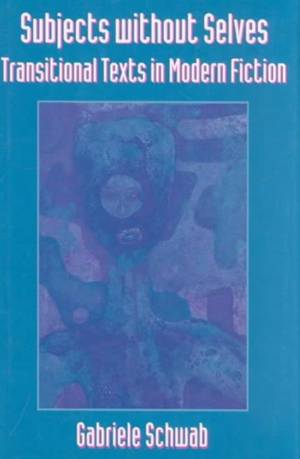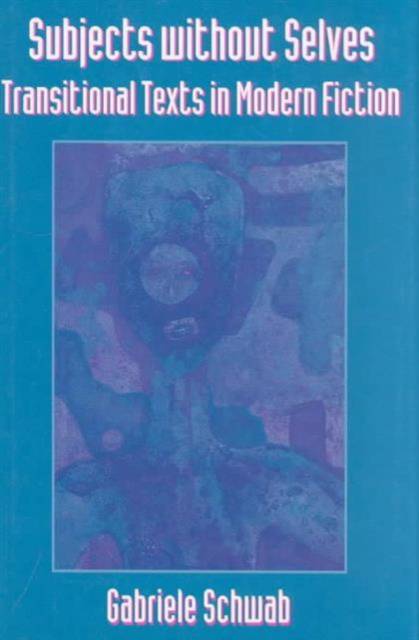
Je cadeautjes zeker op tijd in huis hebben voor de feestdagen? Kom langs in onze winkels en vind het perfecte geschenk!
- Afhalen na 1 uur in een winkel met voorraad
- Gratis thuislevering in België vanaf € 30
- Ruim aanbod met 7 miljoen producten
Je cadeautjes zeker op tijd in huis hebben voor de feestdagen? Kom langs in onze winkels en vind het perfecte geschenk!
- Afhalen na 1 uur in een winkel met voorraad
- Gratis thuislevering in België vanaf € 30
- Ruim aanbod met 7 miljoen producten
Zoeken
Omschrijving
How do aesthetic forms contribute to different kinds of cultural knowledge? Gabriele Schwab responds to this question with an analysis of the nature of subjectivity in modernist fiction. Drawing on French and Anglo-American psychoanalysis as well as reader response theory, she explores the relationship between language and subjectivity and in so doing illuminates the cultural politics and psychological functions implicit in the aesthetic practices and literary forms of modernism and postmodernism. The result of this exploration is a new understanding of the function of literature as a form of cultural knowledge.
Schwab demonstrates how literature creates a transitional space where boundaries of language and subjectivity are continually aped and reshaped on both an individual and a cultural eve. Modern and postmodern experimental texts, in particular, fulfill this function through the multifarious exploration of the boundaries of poetic language and their opening to the unconscious. Undertaking what she terms a literary ethnography of the decentered subject, Schwab examines five novels: Herman Melville's Moby-Dick, Virginia Woolfs The Waves, James Joyce's Finnegans Wake, Samuel Beckett's The Unnamable, and Thomas Pynchon's Gravity's Rainbow. Schwab demonstrates how the aesthetic figurations of unconscious experience in these texts generate new forms of literary language and an aesthetic reception that is directly relevant to an increasingly global and hybridized culture. In her concluding chapter, which introduces the notion of "textual ecologies," Schwab analyzes the literary subjectivity of "transitional texts" in light of such contemporary theories as systems theory, cybernetics, and the new physics. From this perspective, such texts not only reflect cultural practices but take part in shaping their change and innovation.Specificaties
Betrokkenen
- Auteur(s):
- Uitgeverij:
Inhoud
- Aantal bladzijden:
- 304
- Taal:
- Engels
- Reeks:
- Reeksnummer:
- nr. 43
Eigenschappen
- Productcode (EAN):
- 9780674853812
- Verschijningsdatum:
- 1/01/1994
- Uitvoering:
- Hardcover
- Formaat:
- Genaaid
- Afmetingen:
- 165 mm x 244 mm
- Gewicht:
- 571 g

Alleen bij Standaard Boekhandel
+ 305 punten op je klantenkaart van Standaard Boekhandel
Beoordelingen
We publiceren alleen reviews die voldoen aan de voorwaarden voor reviews. Bekijk onze voorwaarden voor reviews.









